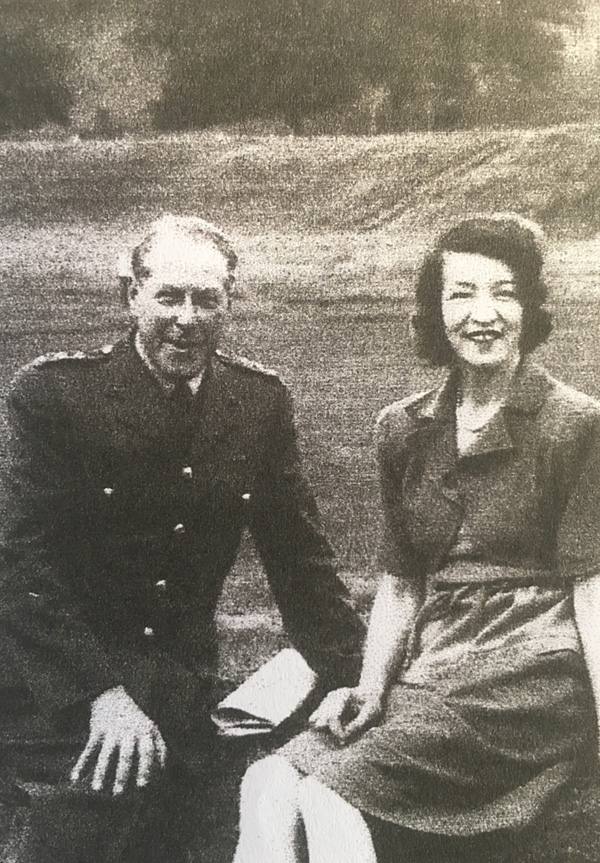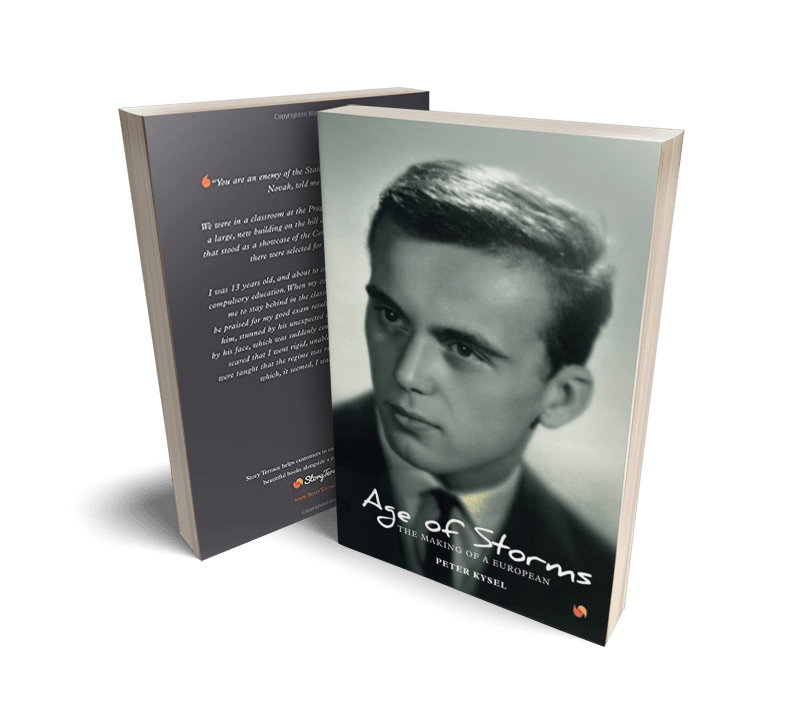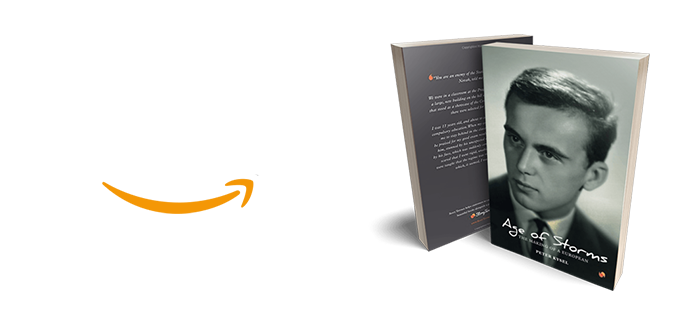 Age of Storms,
Age of Storms,
Making of a European Volume I – Early Years
Published on 30 November 2018 by Austin Macauley Publishers Ltd, 25 Canada Square, Canary Wharf, London W14 5LQ. ISBN: 9781528913874, E-Book ISBN: 9781528913881, 260 pages, in Paperback and E-book editions, Available on: Amazon Books, Age of Storms, Peter Kysel.
Synopsis: “Age of Storms” is the first volume of an autobiographical trilogy. It covers half a century from 1918 the year when the author’s father was born and when Czechoslovakia became independent.
The book records how individual lives were impacted and moulded by historical events in Europe, from the creation of democratic Czechoslovakia, appeasement of the Nazis by Britain and France in Munich in September 1938, the German occupation of Europe during WW2, the Prague uprising and its self-liberation in May 1945. It covers a brief period of freedom after the war, which ended with a communist coup d’etat in February 1948 and the fall of the Iron Curtain and concludes with a life in socialist Czechoslovakia and its occupation by the Warsaw Pact armies in August 1968.
The book is an authentic account how two generations, of an originally poor family prospered under democracy and suffered during the Nazi and Communist rules. In socialist Czechoslovakia persecution was automatically applied across generations. For Peter, aged 24, the Soviet invasion created an opportunity to escape. It meant that he left behind everyone he loved and everything he knew, to start a new life in the West.
Excerpts from Age of Storms
Reviews

Transformation, The Making of a European, Volume II
From Political Exile to British Citizen.
Estimated 480 pages, Publishing planned for 2019, in Paperback and Kindle Editions.
To be available on Amazon Books.
Synopsis: Peter became a political refugee and began his life in Britain by washing up dishes in a hotel in Llandudno. In contrast to vindictiveness of his homeland, he was welcomed and helped by his newly adopted country. He became a student at Oxford and met his partner Florisse. They moved to London, married and had a daughter Tamara, to whom he dedicated his literary work.
His self-confident behaviour often covered his ignorance and inner timidity and made his adjustment to life in Britain more difficult than it needed to be. He witnessed and participated in transformation of the City of London from an economic backwater of the nation, to its powerhouse. Early adoption of computers gave Peter unique investment skills, that he successfully developed in his professional life.
He became a British citizen, but the communist regime still reached out to sentence him to five years of imprisonment. Global political events had important influence on his personal life and professional career. Peter learnt principles of privatisation from their father in the Thatcher’s administration and passed on his experience to his former compatriots in broadcasts by the Radio of Free Europe.
He learned how the Czechoslovak history was wilfully distorted. This volume traces Peter’s transformation from a lonely refugee from a socialist country, who hardly spoke English, to a director of a merchant bank and to the fall off communism in Europe in 1989.

The Red Wolves, The Making of a European, Volume III
Two Europeans
Estimated 400 pages, in Paperback and E-book editions, Publishing planned for 2019.
Synopsis: The lives of a half of the Europeans were transformed overnight by the democratic revolutions in the East of Europe in the last decade of the 20th Century. After the initial spontanenous flare ups of popular romantic emotions, these revolutions were systematically usurbed by the region’s red wolves, their ultimate victors. This novel is an insider account of how the new, democratised societies were formed from the debris of communist regimes and how they have evolved since.
This is a partly autobiographical novel and partly roman a clef, where real life is overlaid, when necessary, with a facade of fiction. Unlike many other novels of this genre, real names of the public figures have been retained, to allow the reader to place them with the events during this period. Several names have been changed, to protect individuals. The book mirrors the author’s life, although many events, names, locations and dates have been altered. The book’s two main characters are professional people, hidden behind the public figures, who have influenced these dramatic changes.
It describes their motivations and follows them when they set out to steer the two countries towards more just and prosperous societies. It is an authentic account of dangers, including intimidation, threats and attacks on their lives. The book illustrates how the characters’ moral principles were challenged and how their families’ lives were drawn in.
This fiction, reflecting reality, often feels stranger than pure fiction. Neither of the two main characters are completely, who they are perceived to be. The English Banker is also a Czech refugee and the potential claimant of the Russian imperial crown is also an English Accountant. They nudged history in Europe towards its present shape, but have remained private persons. Without people like them, the societies in a half of Europe would have turned out differently. In the event they have been stabilised, banishing the threat of a war torn Europe for at least a generation. The book pays homage to ordinary people of character, who made personal sacrifices to reach the twin goals of democracy and market economy and whose contribution would have been otherwise forgotten.

The Honorable German, film script about Herbert Sulzbach OBE
In cooperation with Tony Grenville and the principal writers Michael Bottenheim and Richard Bergas.
In parallel Peter Kysel and Tony Grenville are researching and writing a book on the history of the Herbert Sulzbach’s family in Germany and the UK. Print is expected in 2018-19, estimated 300 pages, in Paperback and Kindle Editions, to be available on Amazon Books. Photo: Captain Herbert Sulzbach (1894-1985) with his wife Beate in summer 1947. H. Sulzbach volunteered for the German army in 1914, served till 1918 and was awarded the Iron Cross. He wrote a bestseller “Fifty Months on the Western Front”. As a Jew he became a refugee in England in 1937 and joined the British army. Sulzbach was crucial in the denazification of the Wehrmacht soldiers during the war and was promoted to the rank of Captain and awarded OBE for his contribution. He is buried in the Hampstead cemetery in London.

 Age of Storms,
Age of Storms,